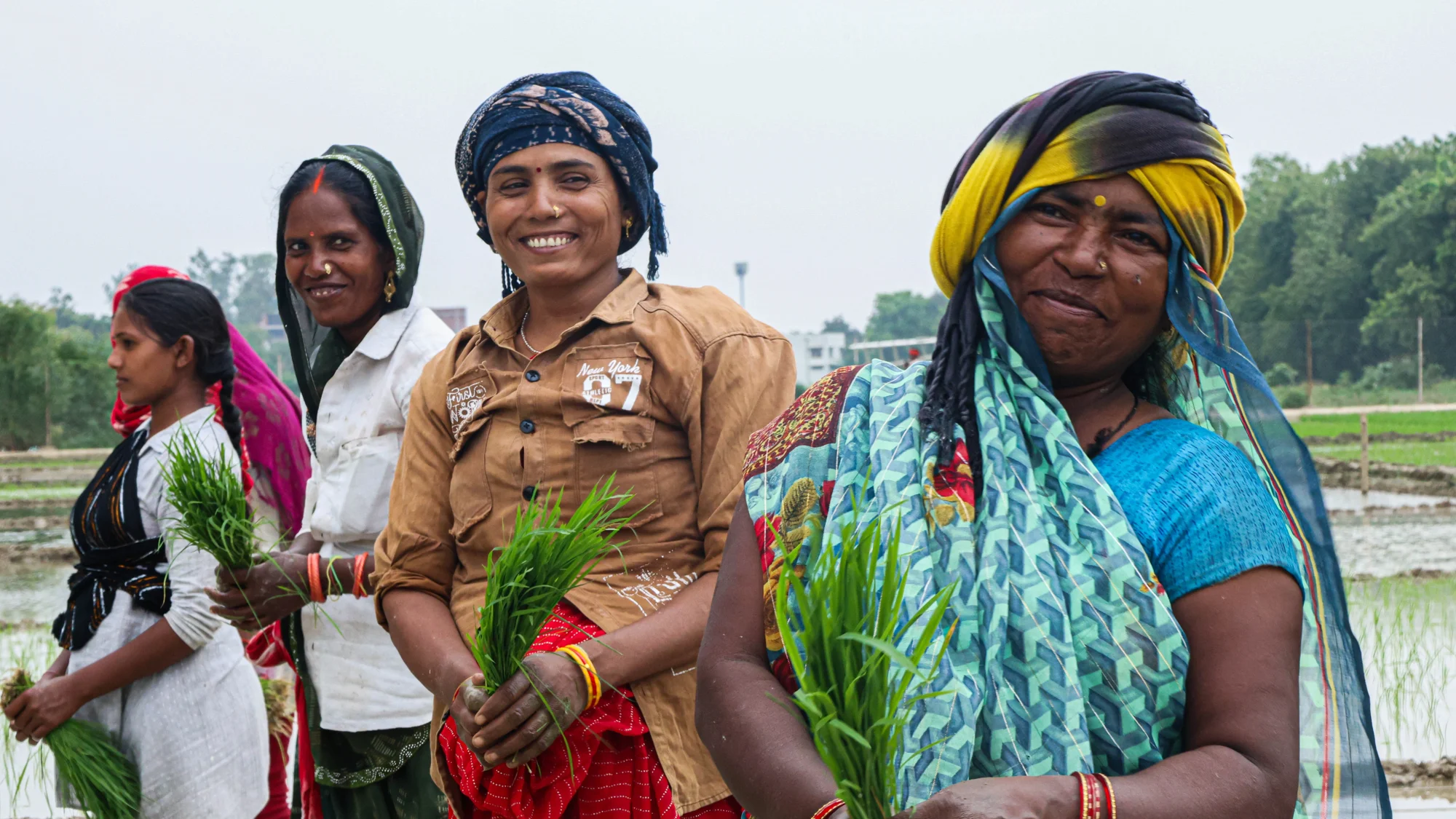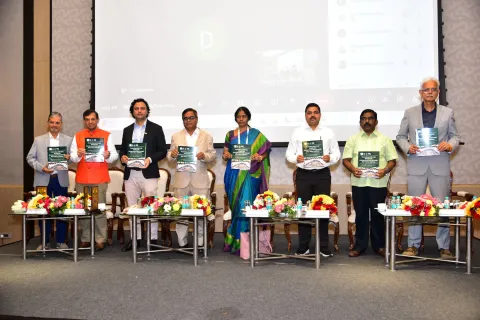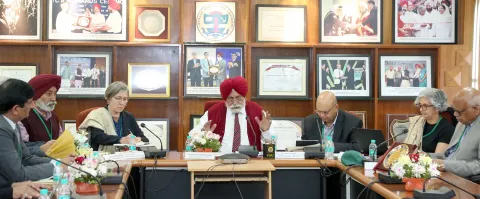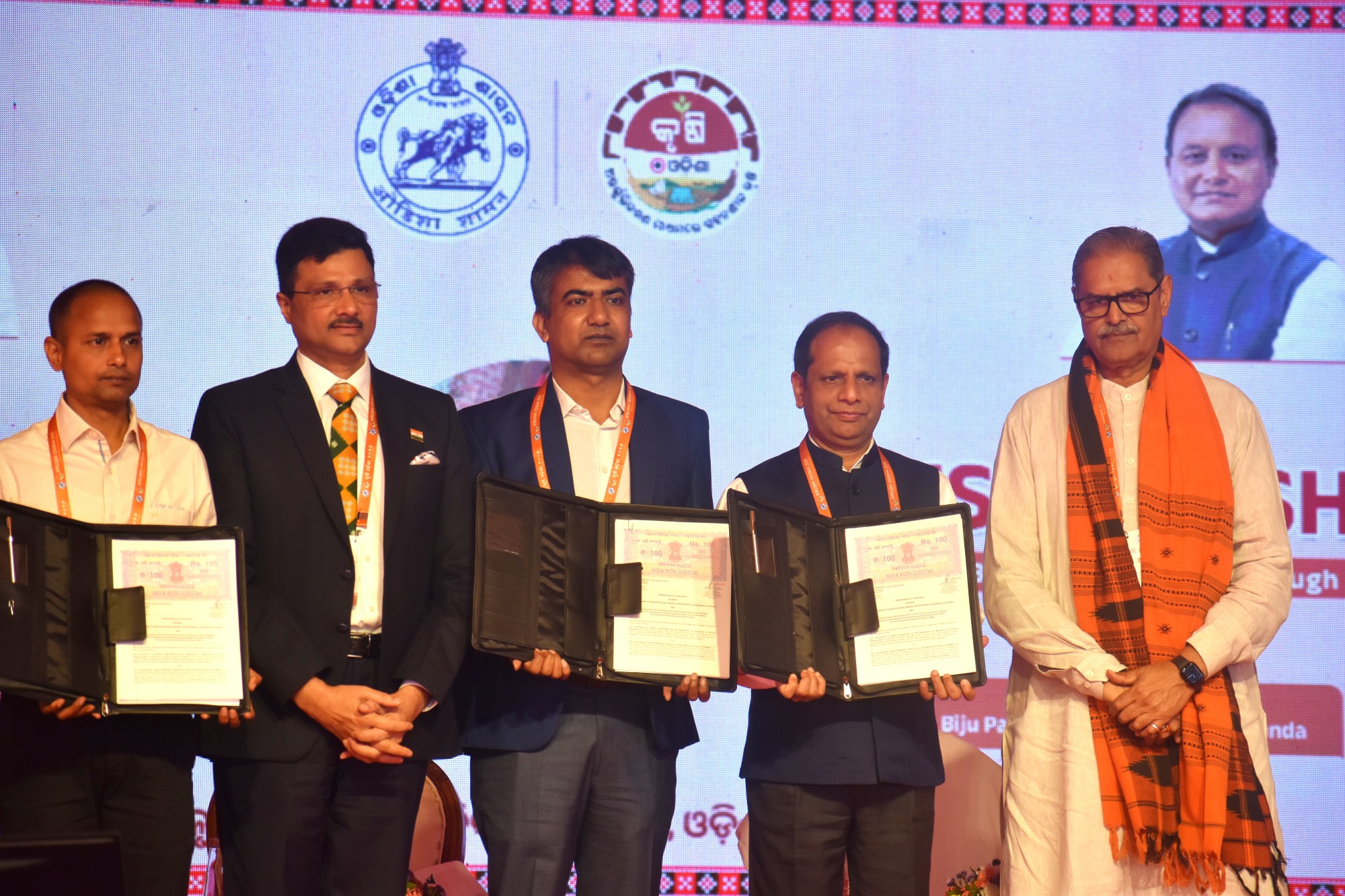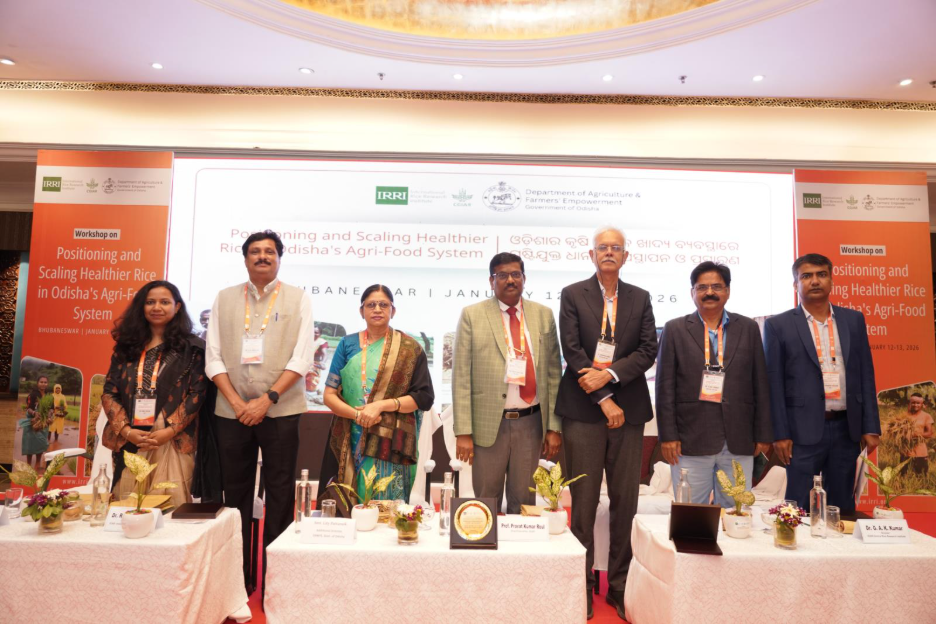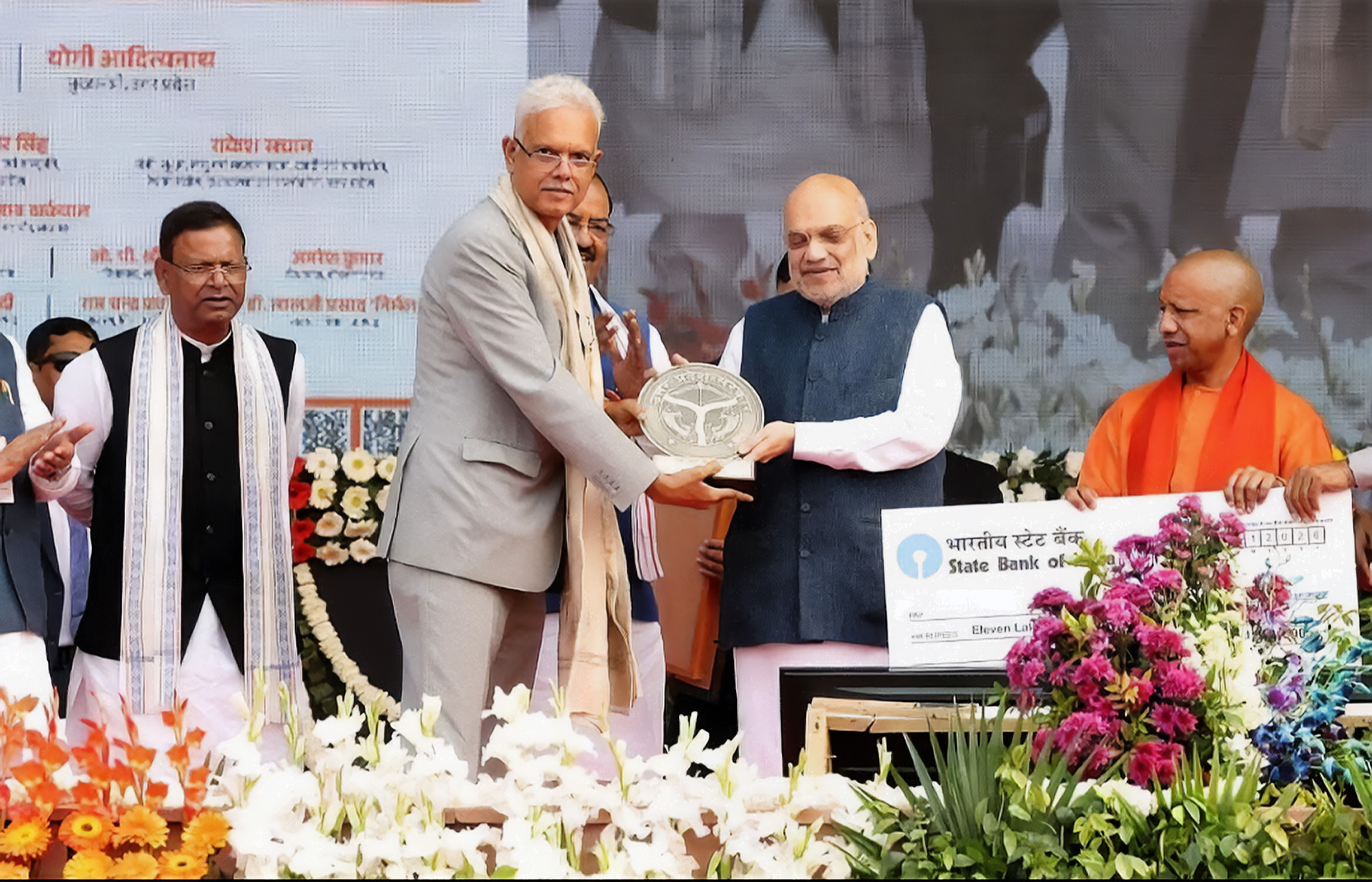Overview
India, the world’s second-largest rice producer and consumer, cultivates nearly 45 million hectares of rice annually and supports over 100 million livelihoods. While rice remains central to India’s food security and rural economy, challenges such as climate-induced stress, groundwater depletion, yield gaps, labor shortages, and post-harvest losses threaten the sustainability of its rice value chain. Productivity in many rainfed and stress-prone ecologies, especially in eastern India, remains below 2.2 tons per hectare. Furthermore, nearly 15% of total production is lost post-harvest due to inadequate storage and processing infrastructure.
IRRI’s work in India is supported by a strong network of regional offices located in Delhi, Varanasi, Hyderabad, Odisha, and Bihar enabling close collaboration with national and state governments, research institutions, and development partners. Active across key rice-growing states such as Uttar Pradesh, Bihar, Odisha, Punjab, Haryana, Madhya Pradesh, West Bengal, Maharashtra, Tamil Nadu, Telangana, Kerala, Jharkhand, and Chhattisgarh, IRRI promotes climate-resilient rice varieties, sustainable production practices like Direct Seeded Rice (DSR) and Alternate Wetting and Drying (AWD) and strengthened seed systems. In collaboration with World Bank, IRRI made notable contributions through the APART project in Assam, enhancing varietal dissemination, post-harvest practices, and extension services.
In the last 10 years, IRRI supported the release of 141 rice varieties in India; 52 fully developed by IRRI and 89 derived from IRRI germplasm. In 2024 alone, 10 new varieties were released, improving resilience, yield, and nutrition. IRRI has shared over 12,000 breeding lines with 50+ NARES partners, including 180 advanced lines with multiple stress tolerance traits provided to IARI and IIRR for use in national breeding pipelines. Additionally, 2,200 high-value global germplasm accessions and 496 Indian accessions were shared with 7 partners after whole-genome sequencing of 370 accessions—enabling the discovery of novel genes and donors for future crop improvement. Through innovations like SpeedBreed , IRRI is accelerating varietal development by reducing breeding cycles, thus ensuring faster delivery of improved varieties to farmers.
Preserving India’s rich rice biodiversity is another key focus. IRRI collaborates with national partners to document, characterize, and utilize traditional rice landraces, many of which offer unique traits for nutrition, climate resilience, and cultural value. Value addition is also a growing area of IRRI’s work.
IRRI has also leveraged digital tools to boost productivity and decision-making in India’s rice sector. Over 0.31 million farmers have benefited from Rice Crop Manager (RCM) for site-specific nutrient advice, while Rice Doctor offers pest management support in local languages. Tools like SeedCast, RPMS (in Odisha), E-Sakhi, AgDay, and FarmLog support seed forecasting, rice-fallow tracking, AI-based advisories, and digital MRV. Platforms like the Rice Knowledge Bank and Digital Learning Platform expand access to best practices. IRRI also uses GIS, satellite imagery, and drones for crop monitoring, varietal mapping, and precision agriculture.
To ensure last-mile access, IRRI strengthens national and local seed systems through partnerships with public seed corporations, community-based seed producers, and emerging agri-tech startups. This includes support for quality seed production, digital seed tracking, and demand forecasting tools. Alongside this, capacity building remains central to IRRI’s efforts, empowering farmers, extension agents, and young researchers through targeted training, knowledge sharing, and technical support to scale innovations more effectively and equitably.
Through strategic partnerships with NARES partners, state governments, and private sector stakeholders, IRRI continues to contribute to a more resilient, efficient, and inclusive rice agri-food system in India.

Jongsoo Shin
IRRI Regional Director for Asia
Office Address
International Rice Research Institute
1st Floor, Office Block, NASC Complex
DPS Marg, Pusa, New Delhi 110012
Phone Number: +91-11-25807979, 25807980
IRRI South Asia Regional Centre (ISARC)
Located in Varanasi, Uttar Pradesh, India, ISARC is IRRI’s central research and capacity development hub in South Asia. The centre was established through a partnership between IRRI and the Government of India and was inaugurated in 2018 by Prime Minister Shri Narendra Modi. ISARC supports rice-growing countries in South Asia and Africa to address challenges related to climate change, food security, and nutrition. Through its state-of-the-art laboratories and training platforms, ISARC facilitates South-South collaboration, strengthens national agricultural research systems (NARES), and delivers cutting-edge services in rice science, sustainable agriculture, and innovation for the benefit of farmers, researchers, and institutions.
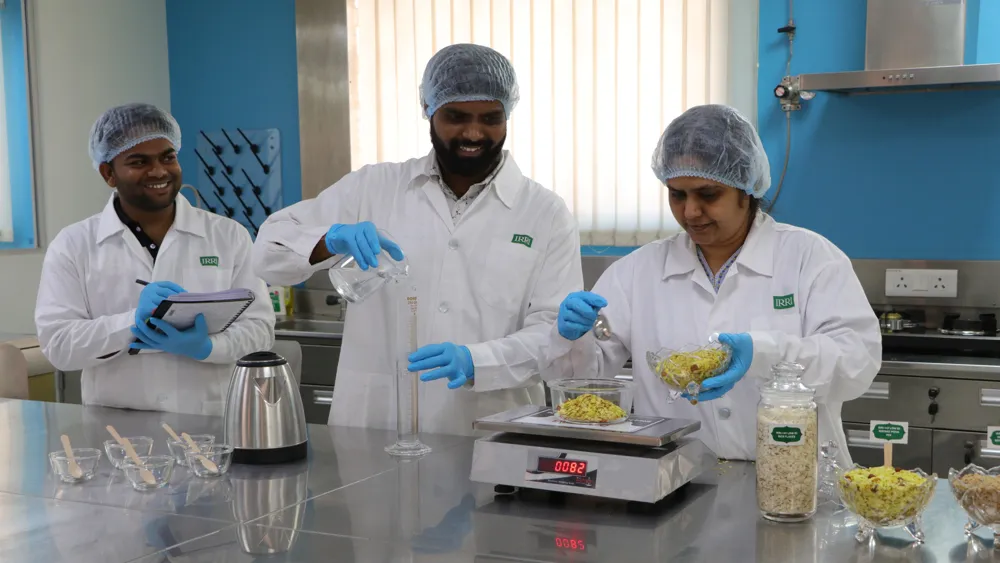
Centre of Excellence in Rice Value Addition (CERVA)
CERVA is ISARC’s dedicated platform for research and innovation in rice grain quality, nutrition, food safety, and value addition. Equipped with ISO 17025:2017 NABL accredited laboratories, the unit promotes traditional landraces and specialty rice varieties to develop healthier rice options. It also leads innovations in value-added rice products and builds food system capacity through training and technology dissemination.
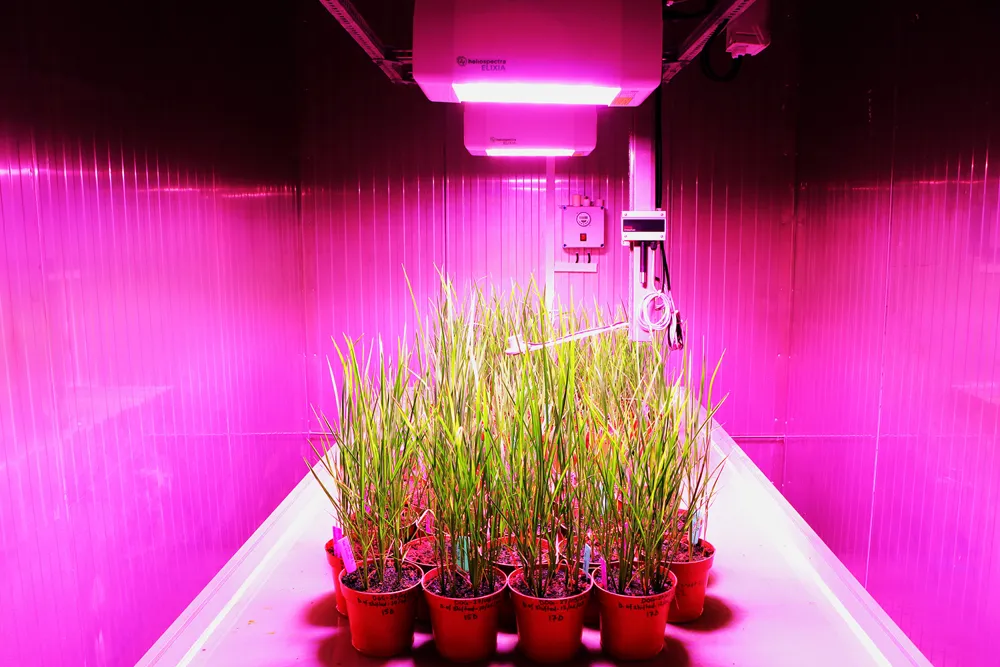
Centre of Excellence in Sustainable Agriculture (CESA)
CESA drives ISARC’s mission to promote climate-resilient, nutrition-rich, and environmentally sustainable rice-based agri-food systems through its seven sub-units: Innovation Breeding, Robust Seed Systems, Geospatial Intelligence & Digital Innovations, Adaptive Agronomy & Pest Ecology, Natural Resource Management, Mechanization and Post Harvest, and Value Chain Development. CESA coordinates with public and private stakeholders in translating research into scalable solutions for better productivity, sustainability, and farmer incomes.
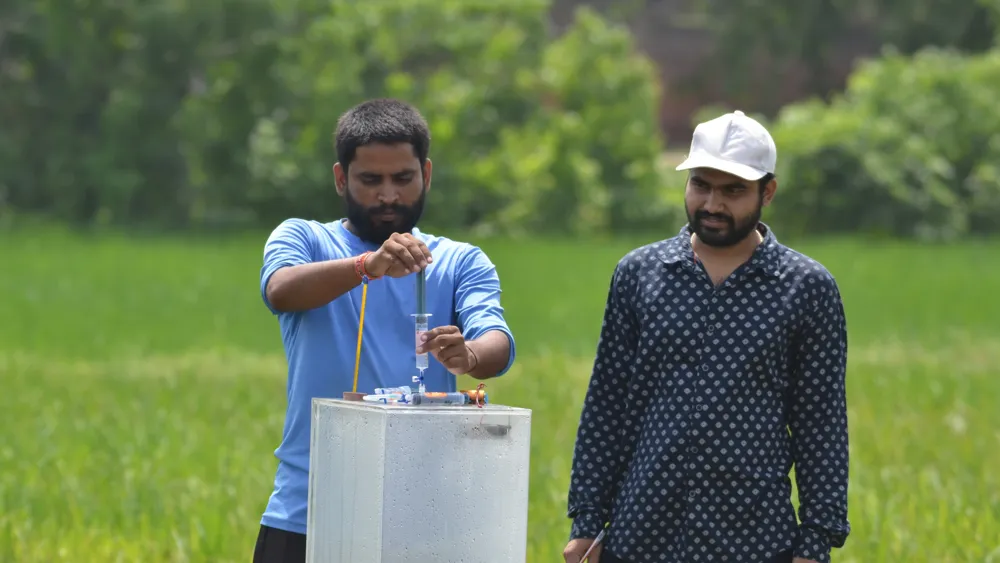
Centre of Education, Innovation, and Research for Development (CEIRD)
CEIRD is IRRI’s specialized education and capacity development unit under ISARC, committed to building human capital for sustainable agricultural development. It offers tailored training, online and blended courses, and institutional support. Through internships, fellowships, and digital platforms like Open Learning, CEIRD makes rice science accessible, scalable, and impactful for diverse stakeholders.
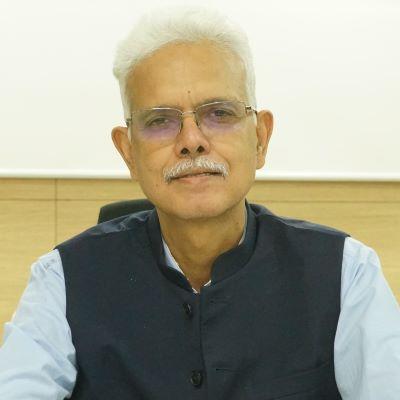
Sudhanshu Singh
Director of IRRI South Asia Regional Centre
Office Address
IRRI South Asia Regional Centre (ISARC),
NSRTC Campus, G. T. Road, Collectry Farm,
P.O. Industrial Estate, Varanasi-221006,
Uttar Pradesh, India
Phone Number: (0542) 251 8900
